Welcome to your comprehensive guide on how to sell a broken car in Dunedin! Whether your car has been sitting unused for weeks due to mechanical issues or it just recently broke down, deciding what to do next can be overwhelming. However, selling a non-functional car doesn’t have to be a stressful process. In fact, you might be surprised at the value it still holds. In this guide, we’ll walk through all the options available to you, from selling to a car removal service to trading it in, or even donating it for a greater cause. By the time you finish reading, you’ll have a clear plan to convert your broken car into cash or something more meaningful. Let’s get started!
The best way to sell a broken car is to assess its condition, choose the right selling option, and be upfront about any problems it has. You have several routes to explore, including selling to junkyards, car removal services, or private buyers, as well as trading it in at a dealership. Taking the time to clean the vehicle, researching its worth, and negotiating your deal will help you get the best price possible. Additionally, for those concerned about sustainability or wanting to contribute to a good cause, eco-friendly disposal options and charitable donations are great alternatives. Here’s everything you need to know to turn your broken vehicle into valuable cash!
Evaluating The Condition of Your Broken Car
When your vehicle breaks down, it’s not just an inconvenience—it’s a potential asset sitting unused. The first step to deciding whether to sell or repair your car is conducting a thorough assessment. By understanding its current condition, you can make a better-informed decision about its value and what options are available. Here’s how to evaluate your car effectively and determine its potential worth.
Quick Inspection: Assessing Your Car’s Condition
Start by giving your car a comprehensive visual inspection to identify the key issues affecting its value. Focus on the exterior, interior, and mechanical components to gain a clear understanding of what’s broken and what’s still salvageable.
- Exterior Check: Look for visible damage like rust, dents, or missing parts. Even if your car isn’t running, a well-maintained exterior can increase its value to potential buyers.
- Interior Condition: Take note of the interior’s state. Are the seats, electronics, and dashboard in good condition? A clean and functional interior can enhance a vehicle’s appeal, even if it’s not drivable.
- Mechanical Inspection: Examine the engine, transmission, and other vital components. Fluid leaks, corrosion, or broken parts can greatly affect the overall value of the car.
- Tires: Check the condition of the tires. If they are relatively new or in good condition, they may be worth selling separately or factored into the vehicle’s sale price.
Evaluating the car’s condition isn’t just about what’s wrong—it’s about identifying which parts are still valuable. Whether it’s intact electronics, engine components, or a clean interior, your car may hold more value than you think.
Importance of Documentation: Gathering Necessary Paperwork
Before selling or scrapping your vehicle, it’s important to gather all necessary documentation. Proper paperwork ensures a smooth transaction and helps avoid any future legal complications. Here’s what you need:
- Vehicle Title: This document is essential for transferring ownership. Without a title, the process of selling becomes more complex.
- Service Records: Providing a history of your car’s maintenance can reassure buyers that the vehicle has been properly taken care of.
- Repair Estimates: If the car has significant damage, it’s a good idea to get repair estimates to give potential buyers a clear understanding of the costs involved.
Having these documents ready will not only help you get a better price but also streamline the selling process.
Optional Sidebar: To Repair or Not to Repair Before Selling
Deciding whether to repair your broken car before selling it depends on several factors. Consider these points:
- Repair Costs vs. Sale Price: If the cost of repairs is higher than the potential increase in sale value, it’s usually better to sell the car “as is.”
- Market Value: Research the selling price for similar cars in your area, both repaired and unrepaired, to get a better idea of whether the repairs are worth it.
- Timing: If you need to sell quickly, it may not make sense to invest time and money in repairs.
Ultimately, the decision will depend on your circumstances. Sometimes, selling a car in its current condition can save you time and money, especially if the repairs are extensive.
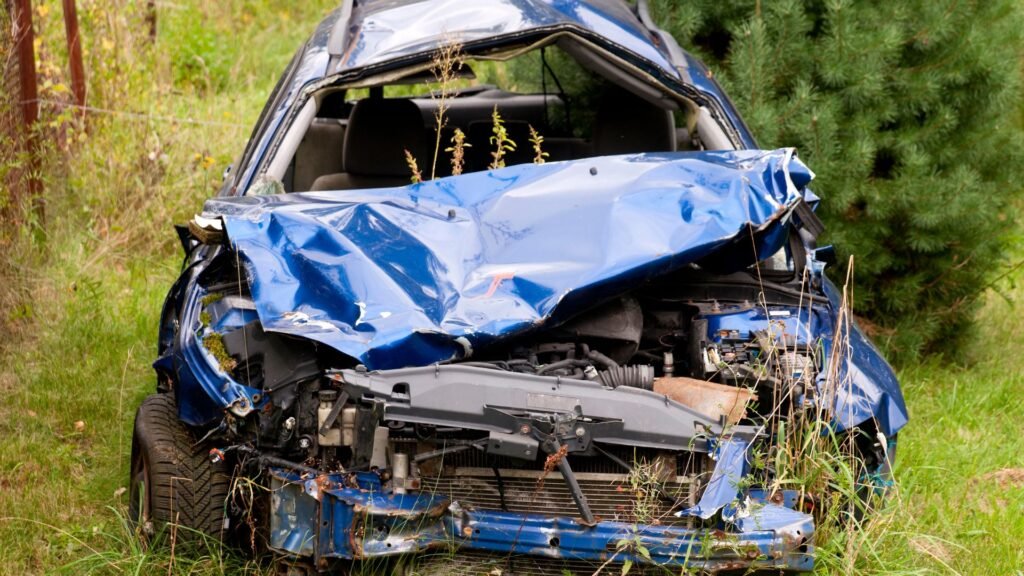
Explore Your Selling Options
When it comes to getting rid of a broken car, you have a few different avenues to explore. Each option comes with its own set of pros and cons, depending on the condition of your vehicle and how much effort you want to put into the sale. Here are the main routes you can take.
Selling to a Junkyard or Scrap Yard
If you’re looking for a quick and easy solution, selling to a junkyard or scrap yard is a convenient option. These businesses specialize in purchasing vehicles that are no longer drivable and will usually offer to tow your car away at no extra cost.
- Pros: Fast, hassle-free transaction. Junkyards will typically accept your car regardless of condition, and many offer instant cash payment.
- Cons: The amount you’ll receive is generally lower, as junkyards pay based on the scrap metal value of the car.
- Maximize Value: Knowing the current scrap metal prices can give you a better idea of what your car is worth and help you negotiate a fair price.
Selling to a Car Removal Service
Car removal services in Dunedin offer another great alternative. They will tow your car for free and give you a cash offer on the spot.
- Convenience: These companies handle the removal process, including towing and paperwork. It’s a hassle-free way to get rid of your car.
- Maximize Value: Some services might offer a higher price if your car has valuable parts like an intact engine or transmission. Make sure to compare offers.
Selling to a Private Buyer
If you’re willing to put in more effort, selling to a private buyer can potentially get you a higher return. By advertising your car online, you can attract buyers interested in fixing it up or using it for parts.
- Higher Potential Payout: Private buyers often pay more than junkyards or dealers, but finding the right buyer may take longer.
- Honesty is Key: Always be transparent about the car’s issues. Detailed descriptions and quality photos help build trust and attract serious buyers.
Trading in at a Dealership
Some Dunedin dealerships will accept broken cars as part of a trade-in when you’re purchasing a new or used vehicle. Though this option may not offer the highest payout, it provides a simple way to get rid of your car while lowering the price of your next one.
- Pros: Convenient if you’re buying a new car. The trade-in value will go toward your purchase.
- Cons: The trade-in value will likely be lower than what you could get through a private sale or even a car removal service.
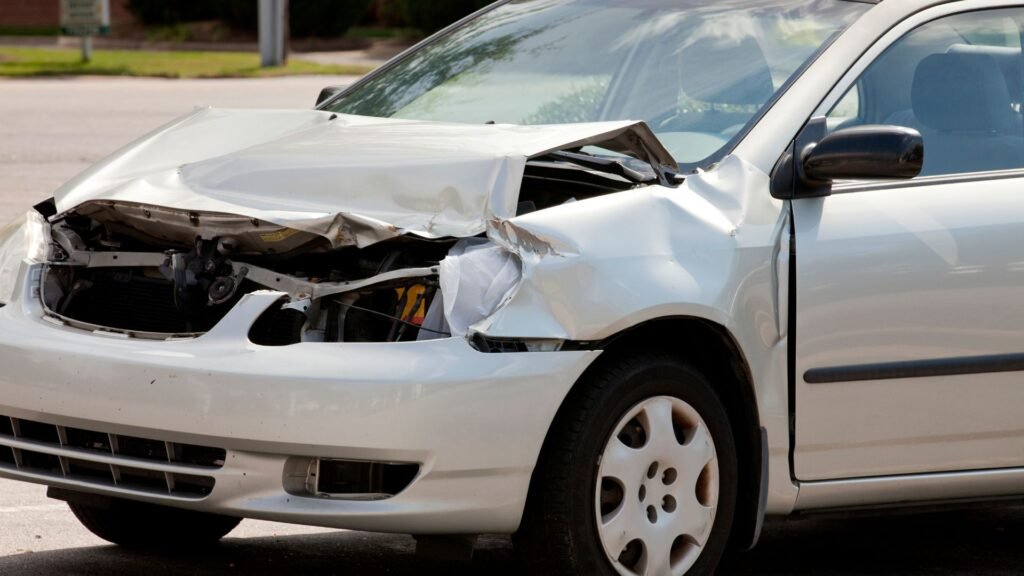
Preparing Your Broken Car for Sale
Whether you’re selling to a junkyard, a car removal service, or privately, proper preparation can help you get more value from your broken vehicle. Follow these steps to make sure your car is ready for sale and that you’re presenting it in the best possible way.
1. Cleaning It Up
First impressions matter, even when selling a broken car. Start by cleaning the exterior—wash off dirt and debris to improve its appearance. A clean car, even if it’s broken, is more appealing to buyers, especially private buyers or dealerships. If you have the time, also clean the interior by vacuuming the seats, wiping down surfaces, and removing personal items.
Don’t forget to tidy up the engine bay as well. While you don’t need to do a full detail, removing dust and grime can give buyers confidence in the condition of the car’s mechanical parts. Even a little effort can make a difference in how much you’re offered.
2. Honesty is Key
When it comes to selling a broken car, transparency is crucial. Make sure to clearly disclose all known issues and be honest about the vehicle’s condition. This helps build trust with potential buyers and avoids complications later in the sale process. Highlighting what’s still in good shape, such as recent repairs or parts in good working order, can also help you secure a better deal.
3. Setting the Price
Pricing a broken car can be tricky, but it’s important to set a realistic price that reflects its condition. Do some research to see what similar cars in Dunedin are selling for, both broken and in working condition. Websites like Trade Me and CarJam can help you gauge the market value. Be prepared to negotiate, and keep in mind that some buyers may see the car as a source of parts, which can raise its value.
Setting a fair price while leaving room for negotiation can help speed up the sale process, especially if you’re selling privately. Be upfront about whether the price is firm or flexible to avoid misunderstandings with potential buyers.

How To Sell Your Broken Car Safely
Selling a broken car can be a simple process, but it’s important to prioritize safety and protect yourself from potential risks. Whether you’re selling to an individual or a company, here are some tips to ensure the sale goes smoothly and safely.
1. Safety When Selling to Individuals
Selling your car to a private buyer can be rewarding, but it also requires caution. Here’s how to protect yourself when meeting with buyers:
- Meet in Public Places: Arrange to meet buyers in a well-lit, public location like a shopping center or busy parking lot. This adds an extra layer of security.
- Bring a Friend: If possible, have someone accompany you to the meeting for added safety. An extra pair of eyes can help in spotting any suspicious behavior.
Secure Payment Methods
Receiving payment securely is just as important as the transaction itself:
- Cashier’s Checks: More secure than personal checks, but make sure to verify them with the issuing bank before transferring ownership.
- Escrow Services: Consider using a trusted escrow service for online sales. This ensures the funds are held safely until both parties are satisfied.
2. Selling to Companies
If you’d rather avoid the hassle of private sales, selling to a company like a car removal service or scrap yard is a safe and easy alternative.
- Check Reviews: Before committing to a sale, check reviews and ratings of the company online. This helps you avoid scams or unreliable services.
- Verify Licensing: Make sure the company is properly licensed to operate in your area. This can usually be checked on their website or through local business directories.
3. Handling Paperwork
Ensuring all paperwork is properly handled is critical to avoid future legal issues or complications. Here’s what you need to keep in mind:
- Transfer of Ownership: Make sure to properly sign over the title to the new owner. Double-check that all fields are filled out accurately, including the sale date and mileage.
- Release of Liability: Notify the New Zealand Transport Agency (NZTA) to update ownership records and protect yourself from future fines or liabilities.
Following these steps ensures a safe and legally sound transaction. Selling a broken car doesn’t have to be a stressful process if you stay informed and protect your interests.
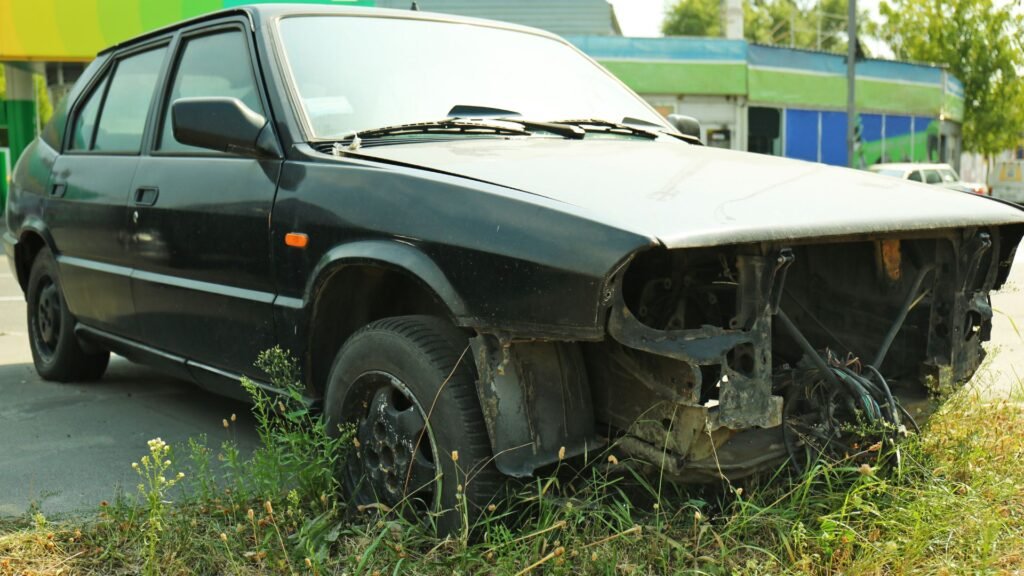
The Environmental Impact Of Selling Your Broken Car
When your car reaches the end of its useful life, it’s important to consider the environmental consequences of how you dispose of it. Fortunately, there are eco-friendly disposal options available that can minimize your car’s environmental impact and even benefit the community. Here’s how you can sell or dispose of your broken car in an environmentally responsible way.
Eco-Friendly Disposal Options
Choosing to recycle your car is one of the best ways to reduce its environmental impact. Recycling not only keeps the car out of landfills but also allows for the reuse of valuable materials like metal, plastic, and rubber, reducing the need for new resources.
Selling to Certified Recyclers or Eco-Friendly Junkyards
Many certified recyclers or eco-conscious junkyards follow environmentally friendly processes to dismantle and recycle vehicles in a way that minimizes pollution and waste. These facilities ensure that hazardous fluids are safely removed and disposed of, while reusable materials are sent back into the manufacturing cycle.
Recycling Benefits
Recycling can save energy and resources by reducing the need for new raw materials. For example, recycling metals from old cars requires significantly less energy than mining and refining new metals. By recycling your broken car, you’re contributing to a more sustainable and circular economy.
Donating Your Car to Charity
Another option is donating your broken car to a charity. Many organizations accept non-functional vehicles, which they can either repair, sell, or recycle to support their cause. Donating your car offers the added benefit of giving back to the community while also providing you with a tax deduction.
How It Works
Charitable organizations that accept cars usually handle the entire process, from towing to recycling or selling the vehicle. In return, they provide you with the necessary paperwork for claiming a tax deduction. Be sure to donate to an IRS-recognized charity and keep records of your donation for tax purposes.
Feel Good Factor
Donating your car not only helps the environment but also supports a good cause. Knowing that your old vehicle is being put to use to fund charitable activities can offer a sense of satisfaction and social responsibility.
By choosing eco-friendly disposal options or donating your car, you’re making a positive impact on the environment while potentially helping others in need. These choices are great ways to responsibly get rid of your old vehicle while contributing to a better future.
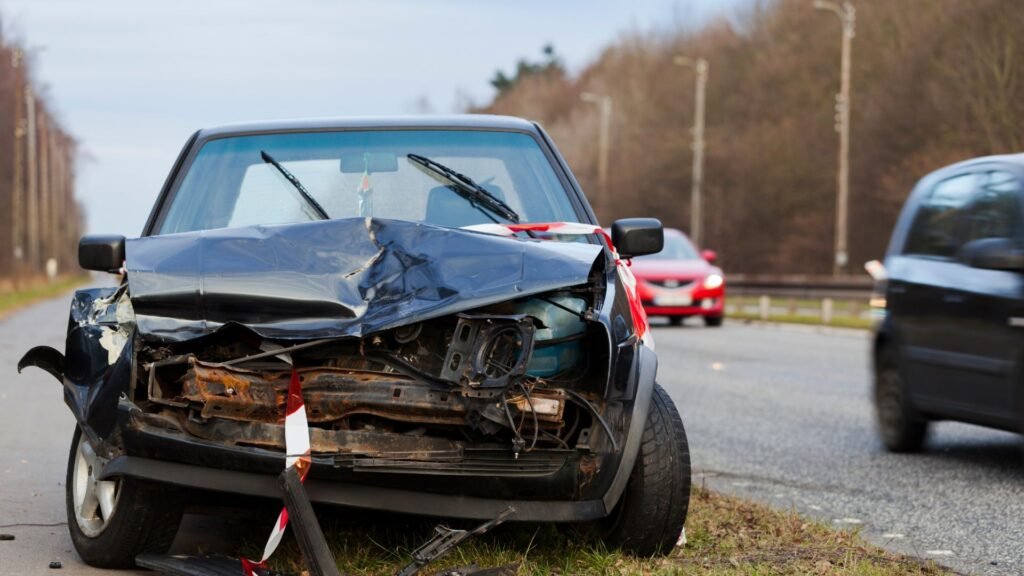
Maximizing The Value Of Your Broken Car
Even if your car is no longer running, it may still hold significant value. By parting out the vehicle or negotiating effectively with buyers, you can get the most money possible from your broken car. Here’s how to extract the maximum value from your vehicle, even in its non-functional state.
Parting Out the Car
How It Works
Parting out a car involves selling individual components rather than selling the vehicle as a whole. This method can be more profitable, as certain parts like engines, transmissions, and electronics often have high demand in the used parts market. If you’re able to remove these parts yourself, you can sell them on platforms like Trade Me or eBay, or through local car parts shops.
Best Platforms to Sell Car Parts
To maximize your earnings, consider listing car parts on platforms such as Trade Me, eBay, or dedicated automotive forums. These sites give you access to a large audience of potential buyers. For larger or hard-to-ship items, local classified sites or Facebook Marketplace can be ideal.
Negotiation Tips
Negotiation is key when selling a broken car or its parts. Here are a few tips to help you get the best price possible:
- Compare Offers: Always seek multiple quotes from junkyards, car removal services, and potential buyers to ensure you’re getting the best deal.
- Know the Market Value: Do some research on what similar cars or parts are selling for, so you can have a better idea of their worth when negotiating.
- Be Prepared to Walk Away: If an offer seems too low, don’t be afraid to decline and wait for a better one. Showing that you’re not desperate can give you leverage in negotiations.
By following these tips and understanding the value of each component, you can ensure that you’re getting the most out of your broken car. With a bit of patience and strategy, you can turn even a non-functional vehicle into valuable cash.
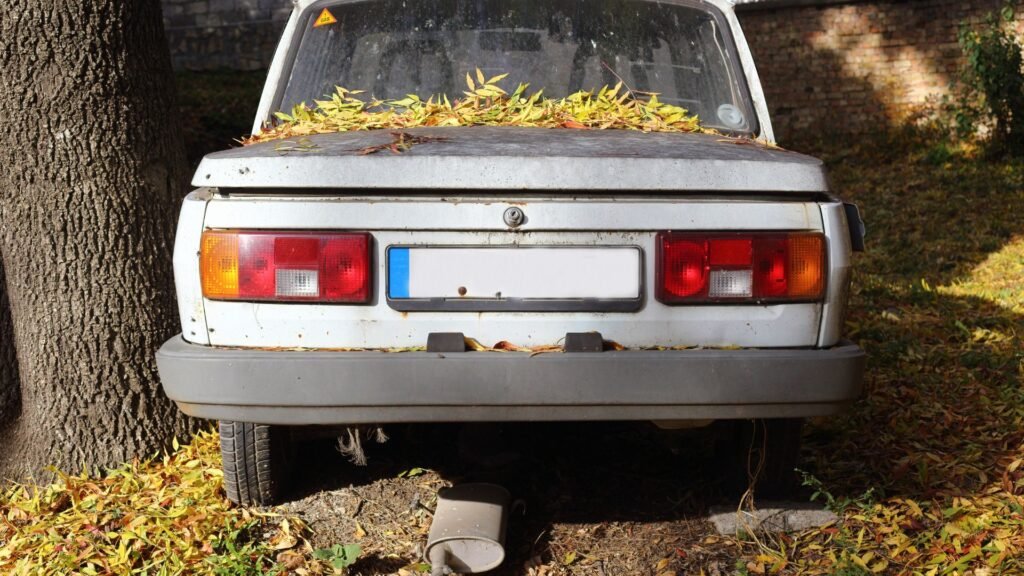
Real-Life Experiences: Success Stories
Staring at a broken-down car in your driveway can feel frustrating, but many people have turned their unwanted vehicles into cash by selling them in creative ways. Here, we’ll look at some real-life success stories that show how you can profit from even the most damaged cars.
Real-Life Experiences: Success Stories
Short Case Study or Testimonial
Take the example of Sarah, a Dunedin resident who recently sold her 2008 Toyota Corolla after it suffered major transmission failure. Faced with a repair bill that far exceeded the car’s value, Sarah decided to explore other options. After researching local car removal services, she found a buyer willing to tow the car away for free and pay her $450. What seemed like a useless vehicle turned into fast cash without any hassle.
Sarah’s story shows that even non-working cars have value, especially when you find the right buyer. With minimal effort, she was able to turn her old car into a profit and free up her driveway space in the process.
Encouragement
If you’re facing a similar situation, don’t let your broken car sit idle. There’s always a market for non-functional cars, whether they’re used for parts, scrap, or repair projects. With the right approach, you can turn what seems like a burden into a beneficial sale.
By following the steps in this guide, you can move forward with confidence and find the best option for your broken car, whether it’s selling for parts, donating, or trading in for something new.
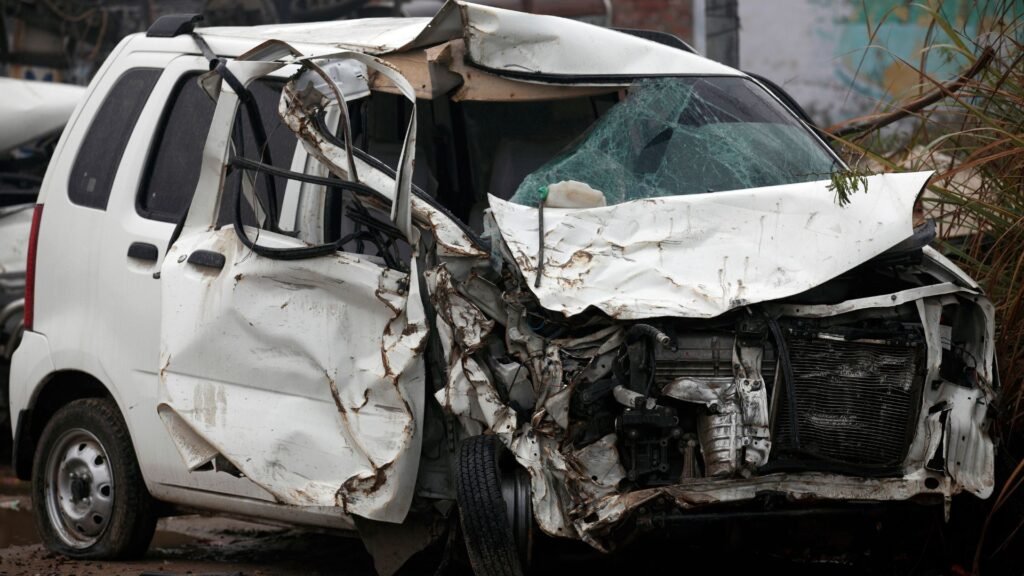
FAQs: About Selling a Broken Car in NZ
Can I sell a broken car without a title?
Is it better to repair my car before selling it?
How much money can I get for a broken car?
Can I trade in a broken car at a dealership?
How do I prepare my broken car for sale?
What’s the difference between selling to a junkyard and a car removal service?
Is it safe to sell my broken car online to a private buyer?
What’s the most eco-friendly way to dispose of a broken car?
How do I avoid getting scammed when selling my broken car?
Can I donate my broken car to charity?
Conclusion
In conclusion, selling a broken car in Dunedin offers you several potential routes to explore. Whether you want to maximize your return, contribute to a charitable cause, or simply get the vehicle off your hands, there’s an option for you. By assessing the condition of your car, choosing the right selling option, and preparing it properly for sale, you can ensure a smooth transaction and turn your broken vehicle into something valuable. Take the first step today—evaluate your car’s condition, explore your options, such as getting a free valuation from Cash For Cars Dunedin, and make an informed decision that best suits your needs.